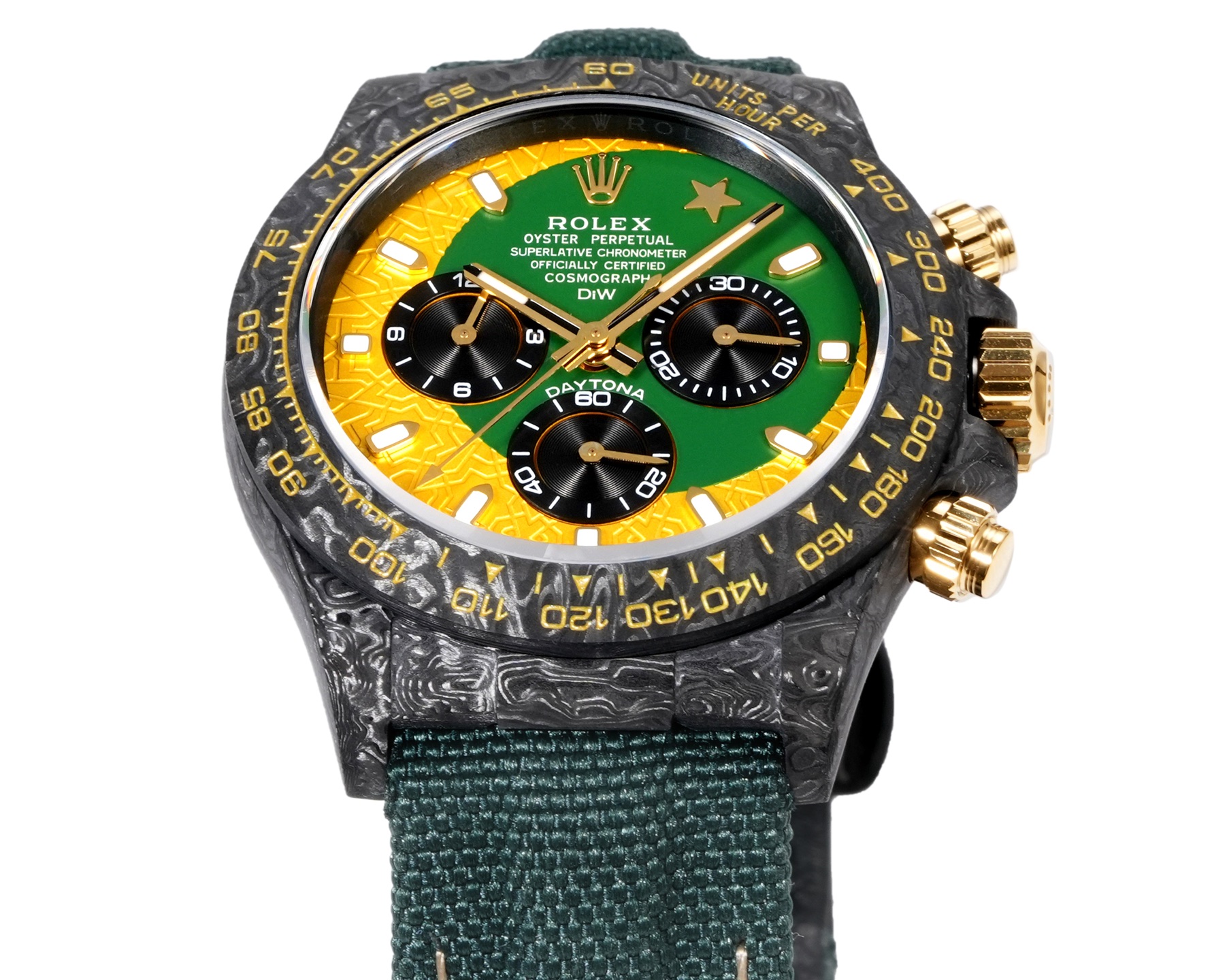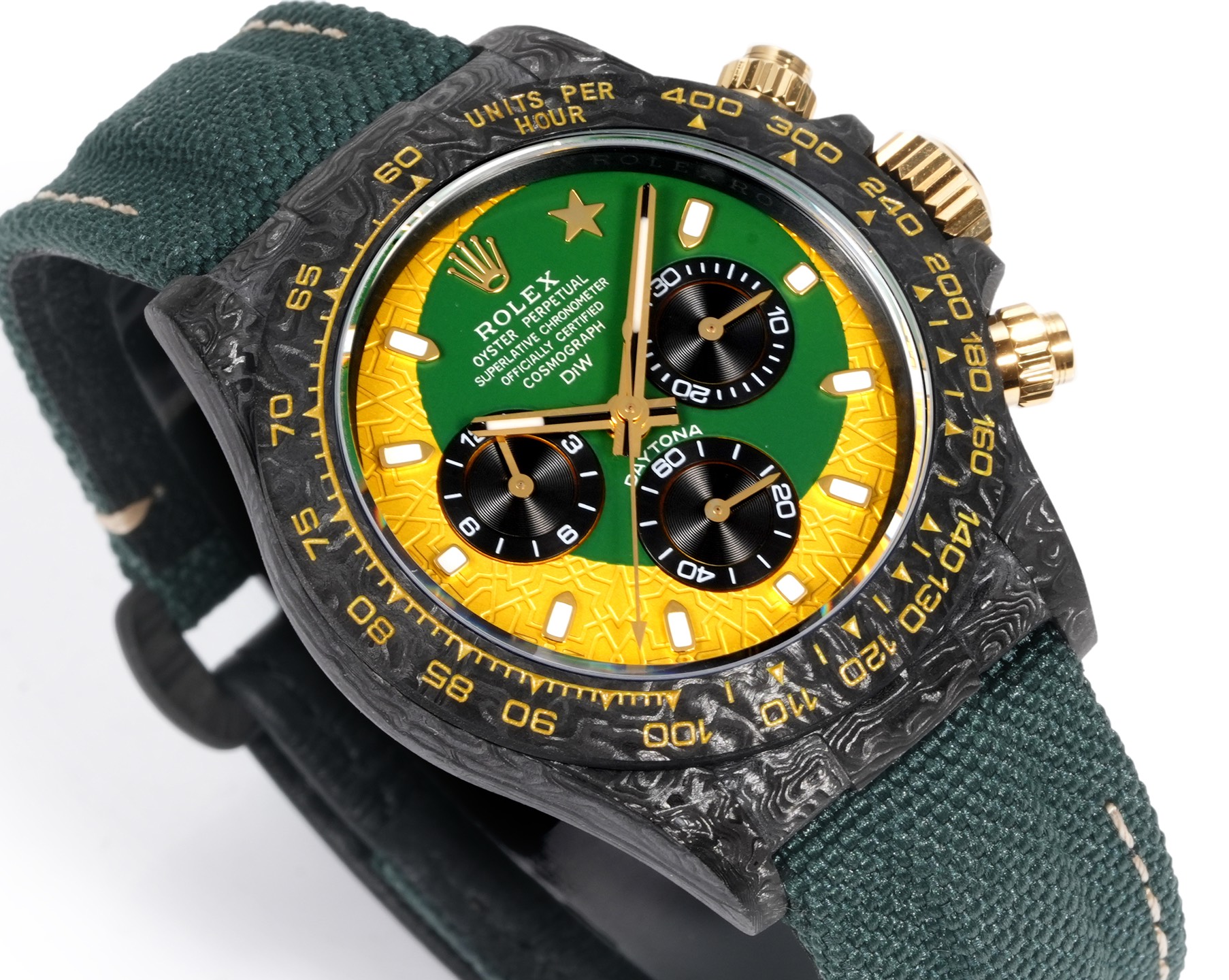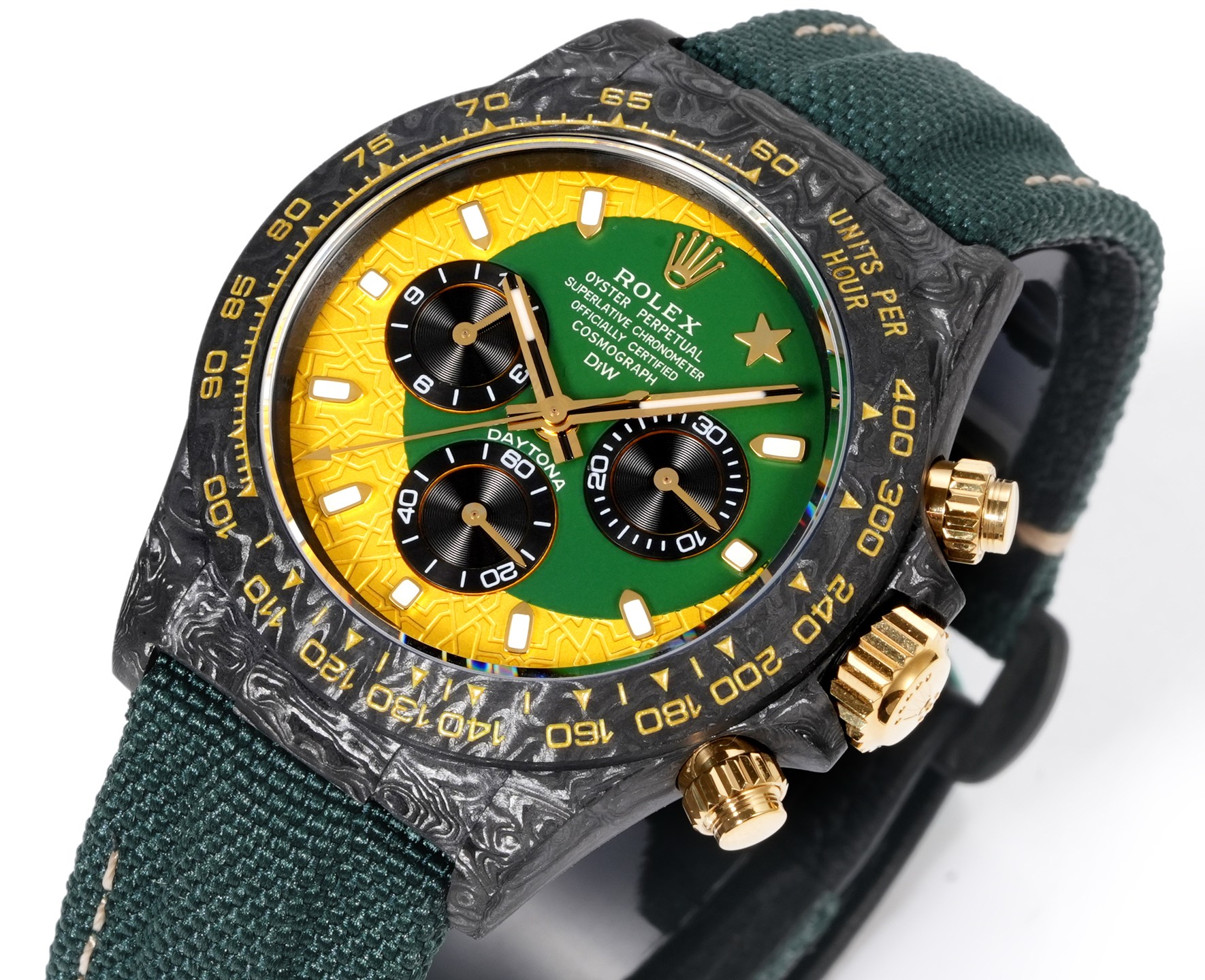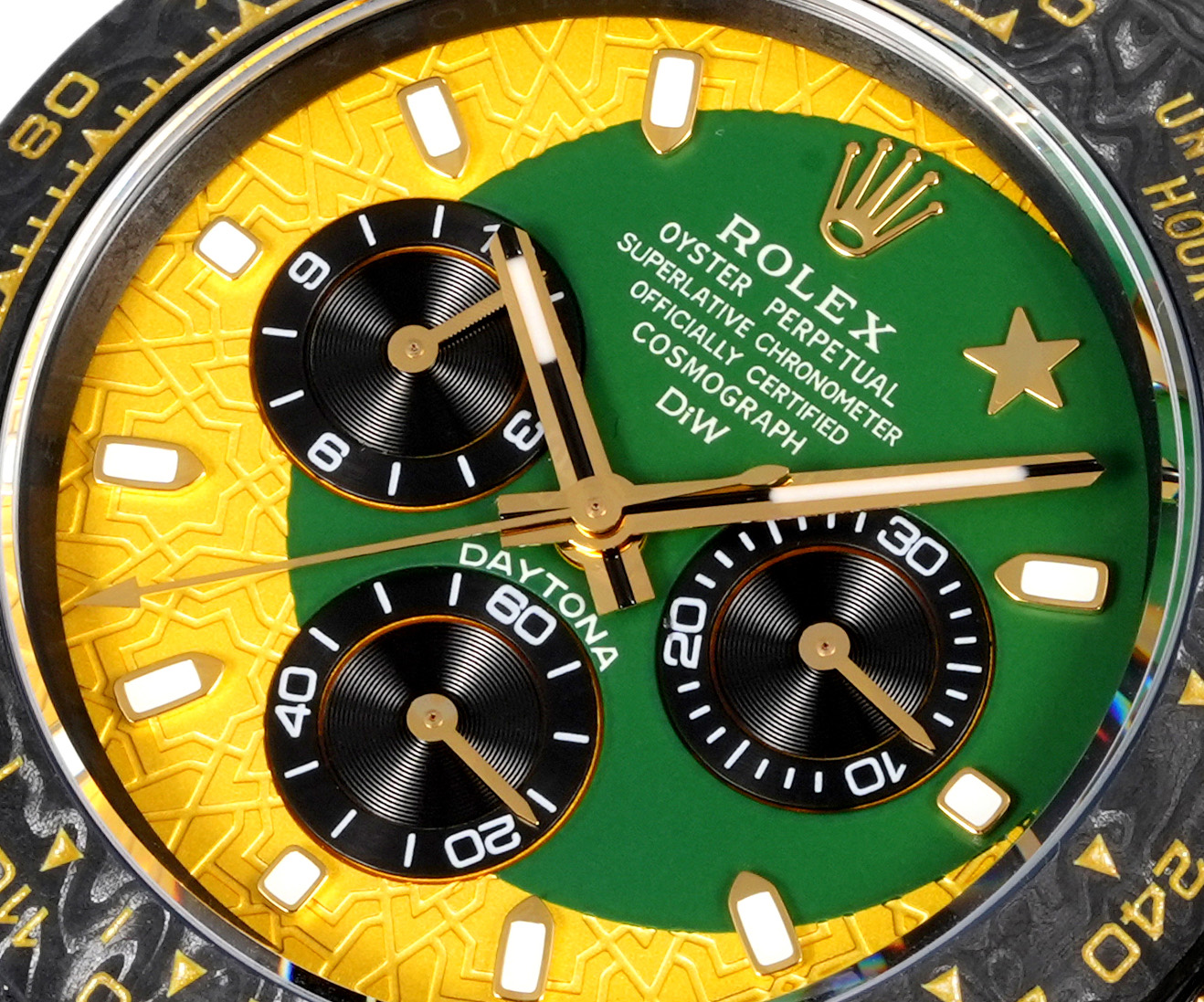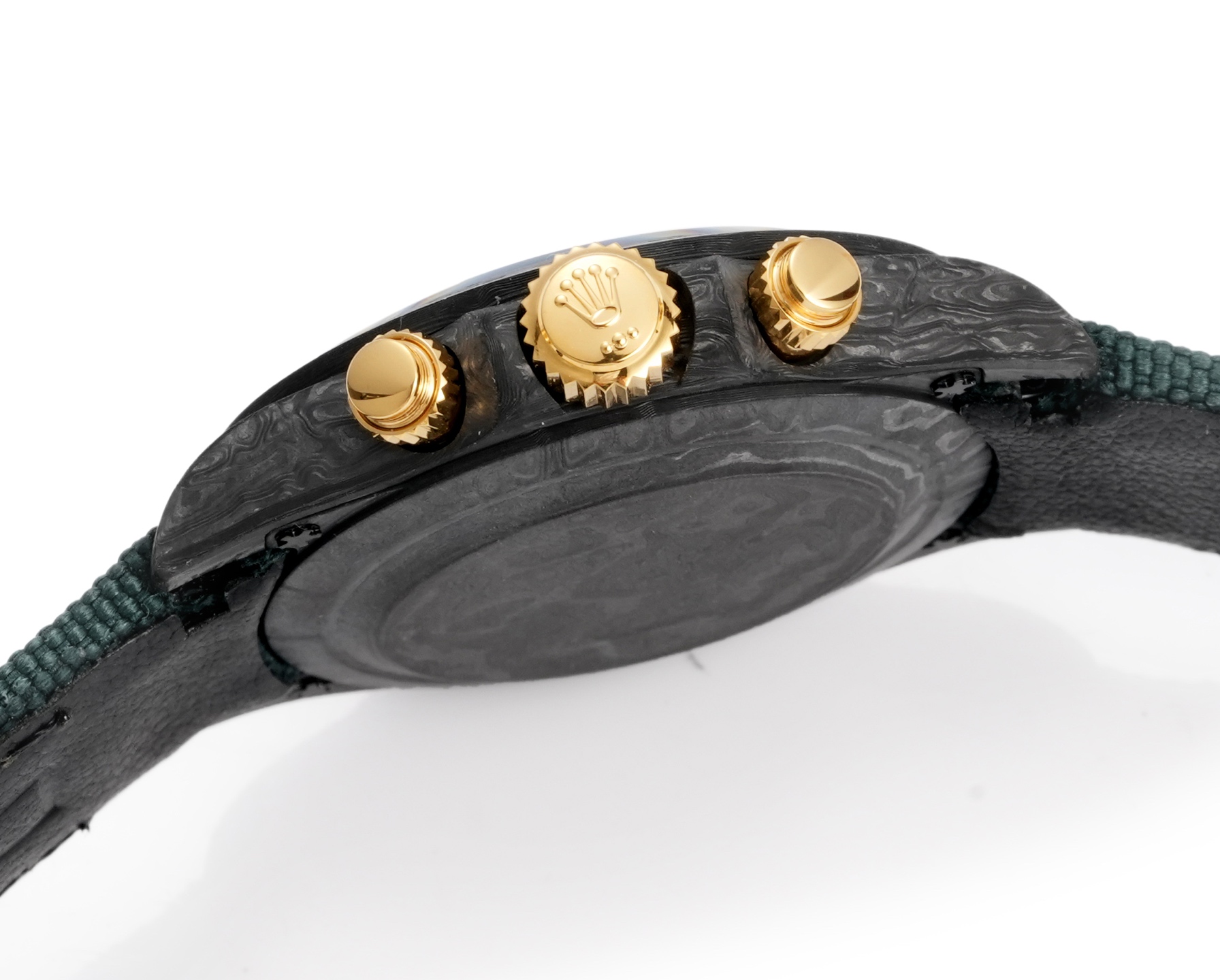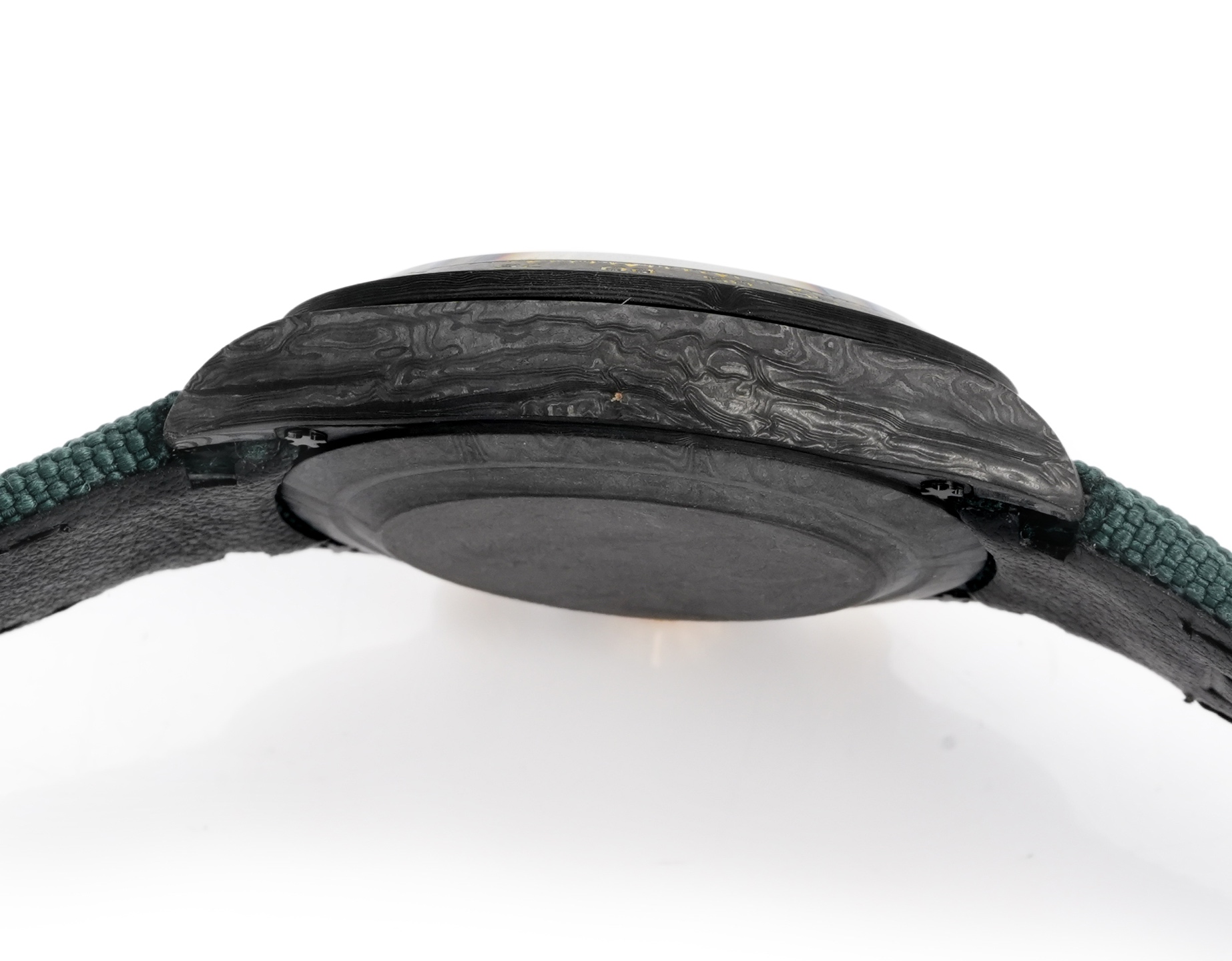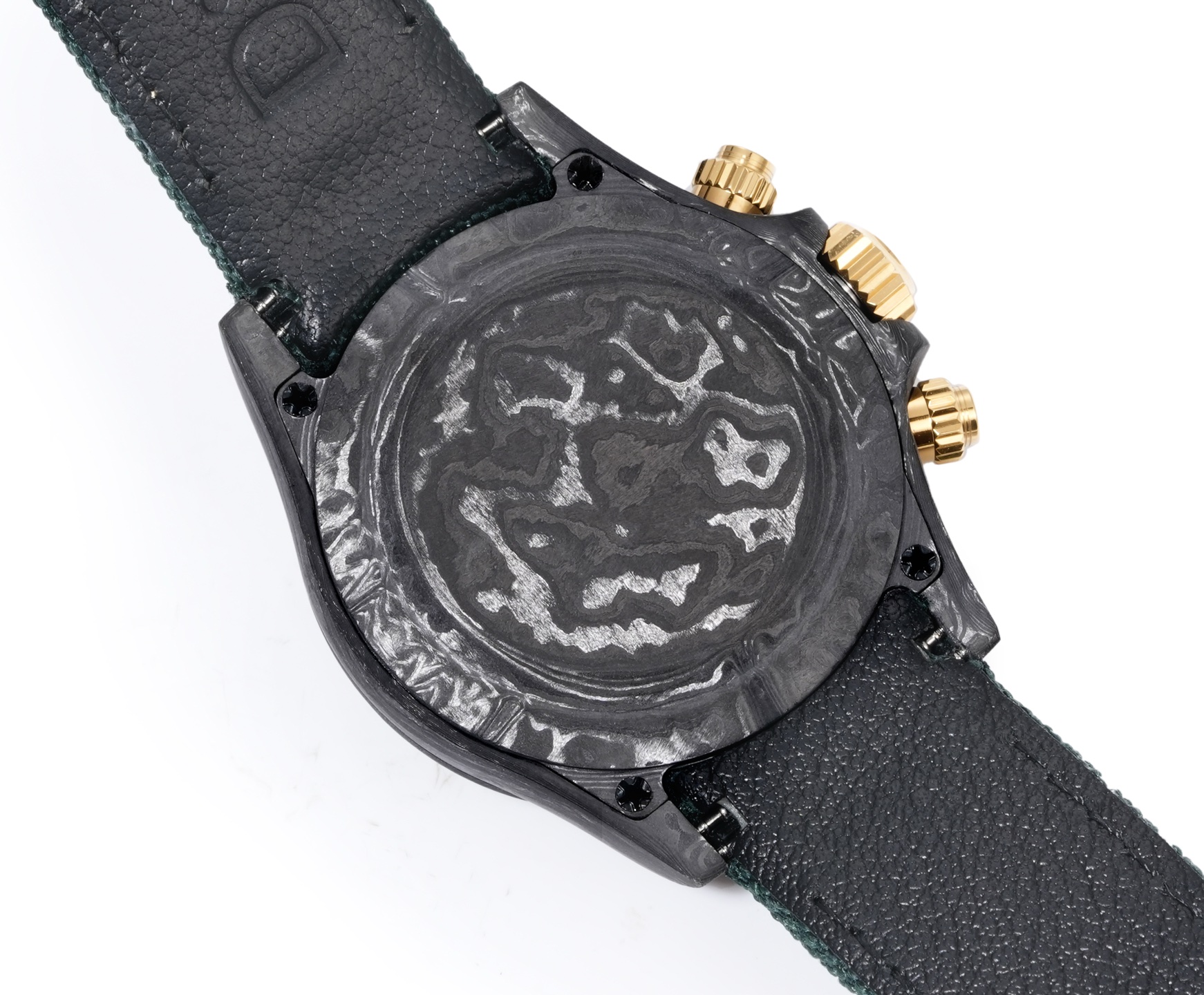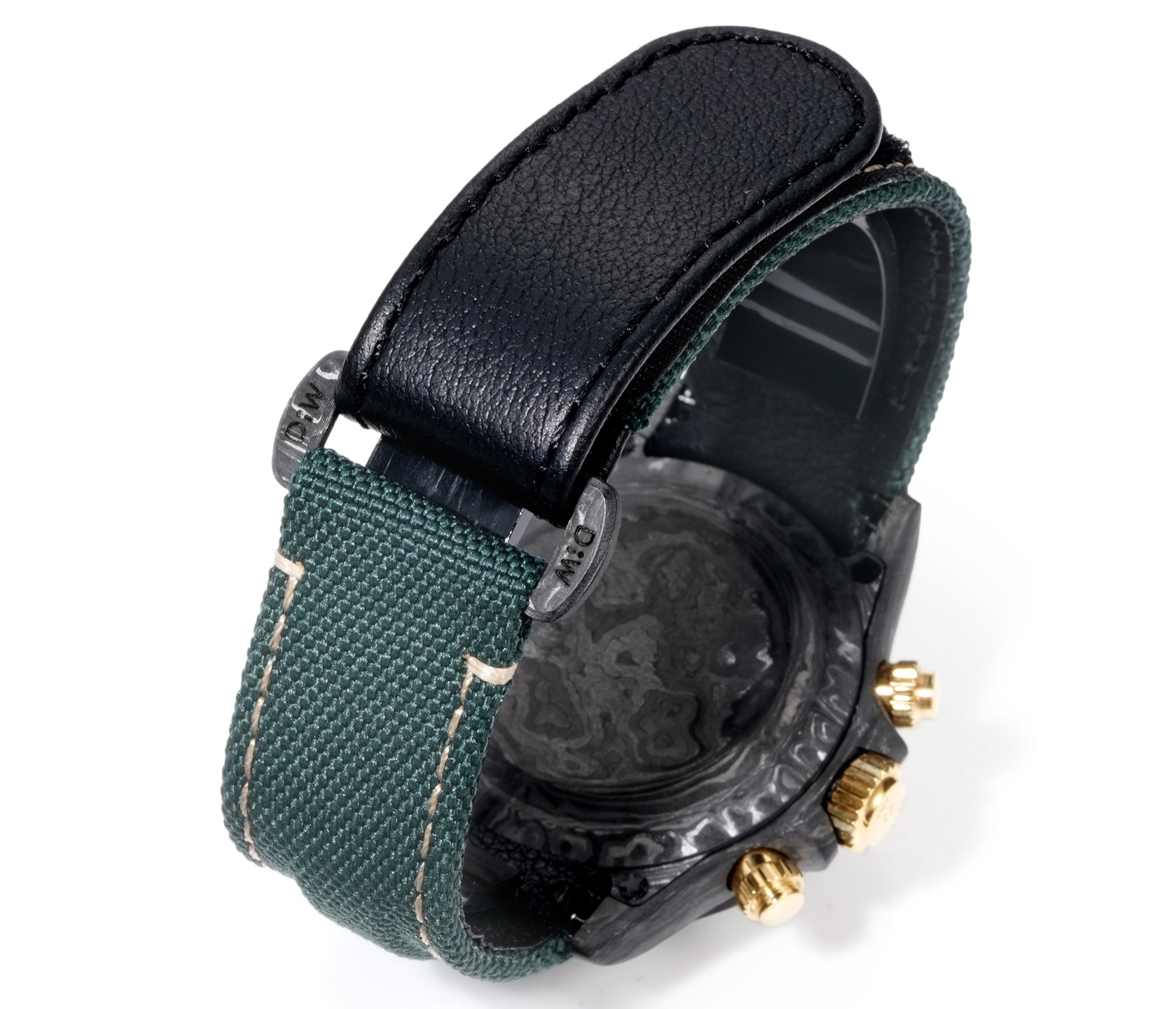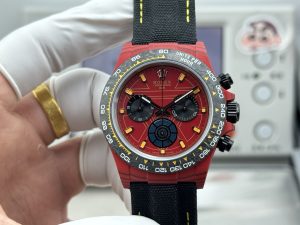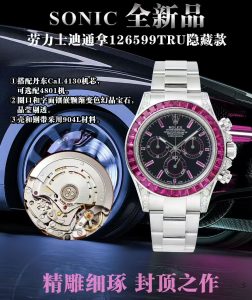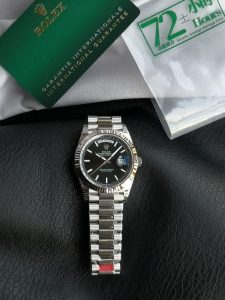Lately, the watchmaking industry has seen a remarkable blend of traditional craftsmanship and cutting-edge materials. Among the intriguing releases is the TW Factory’s custom carbon fiber version of the Rolex Daytona. This iteration not only stands out for its lightweight durability but also boasts the distinction of having unique carbon fiber patterns for each individual watch. Let’s delve deeper into the facets of this remarkable piece, examining its economic and ethical implications, as well as its psychological and personal value.
Design and Material Innovation
The TW Factory’s carbon fiber Rolex Daytona measures at a precise 40mm by 12.4mm, closely aligned with the original dimensions. What’s unique here is the use of high composite carbon fiber and luminescent powder, which not only constructs the watch case, bezel, and case back but also injects a touch of exclusivity through its distinctive carbon pattern. Each piece undergoes meticulous hand-finishing, including polishing and chamfering, elevating its tactile clarity and visual appeal. The watch’s strap, crafted from woven artificial fibers, offers breathability and a soft texture for comfort and practicality.
Economic Perspective: Value in Replica Watches
The inclusion of the replica watch in the luxury domain raises significant economic considerations. This model harnesses the advanced Shanghai 4130 movement, known for its reliability and precision. Consequently, it manages to bridge the expansive gap between functionality and affordability—often classified as a ‘value king.’ The proliferation of such replicas challenges traditional economic models of luxury branding. While the genuine Rolex Daytona can command exorbitant sums, replicas provide a similar aesthetic and functional experience at a reduced cost, thereby democratizing luxury wear.
Ethical Dimensions of Replica Production
From an ethical standpoint, the production and purchase of replica watches like this carbon fiber Daytona raise questions about intellectual property and consumer transparency. The luxury watch industry has long thrived on exclusivity and brand heritage, which replicas directly undercut. However, it is equally important to recognize that replicas fulfill a market need for those who desire the luxury experience without the associated financial burden. Still, this raises debates on whether purchasing replicas inadvertently supports a system that devalues original craftsmanship.
Branding and Psychological Impact
Luxury watches are often perceived as badges of status and identity. By adopting a replica, one might question whether the emotional gratification derived from owning a Rolex is compromised. While traditionalists might argue that only the original confers true status, the evolving mindset among young consumers suggests that replicas can still convey sophisticated taste without the high price tag. The unique carbon fiber pattern ingrained in each watch potentially adds a layer of personal identity to the wearer, fostering an emotional connection that transcends conventional branding narratives.
Conclusion: Personal Value and Forward-Thinking Design
The TW Factory’s custom carbon fiber Daytona navigates the complex waters of luxury watchmaking by marrying innovative materials with a celebrated design. It challenges the conventions of high watchmaking by offering consumers a chance to experience the stature and style without the prohibitive costs. As the market for high-quality replicas grows, it will be fascinating to observe how traditional watchmakers adapt to these shifting demands and the evolving definition of luxury and authenticity. Ultimately, whether a piece is deemed valuable or genuine often lies in the eye of the beholder, and in the case of the replica watch, perhaps also on the wrist of the wearer.

